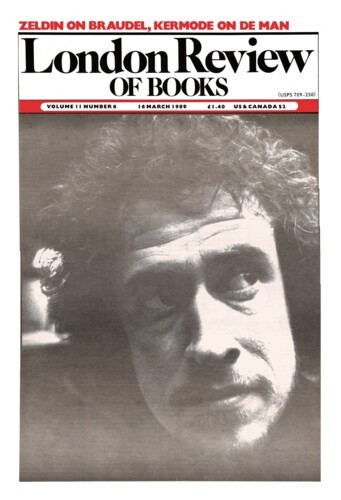Friends
Eugene Goodheart, 16 March 1989
Wayne Booth begins his new book by recalling how in the early Sixties he and his colleagues at the University of Chicago could ignore the distress of a young black assistant professor, Paul Moses, who declared that he would no longer teach Huckleberry Finn because he found the portrayal of Jim offensive. Booth remembers with more than a twinge of conscience that he and his colleagues found the challenge to Mark Twain’s great novel offensive because it violated ‘academic norms of objectivity’. Anyone teaching literature and writing criticism nowadays knows that the appeal to objectivity will no longer do. Indeed, any such appeal may even be suspected – for instance, in the case of Huckleberry Finn – of masking a racist bias. Booth does not admit a racist bias in the invoking of academic norms, but he is convinced that the peremptory dismissal of Moses’ challenge to a canonical work was profoundly wrong and The company we keep is in part an attempt to show why.’

